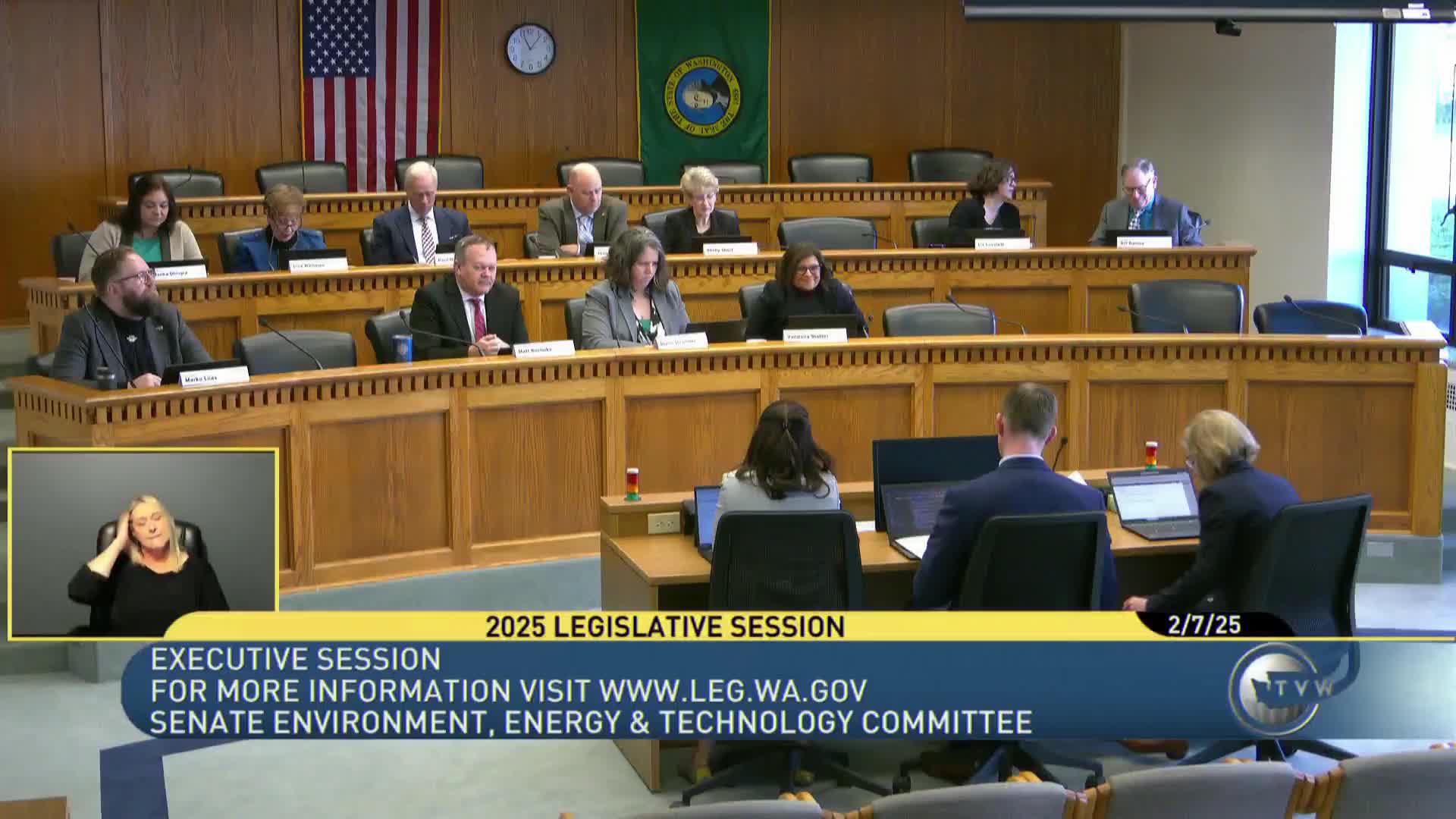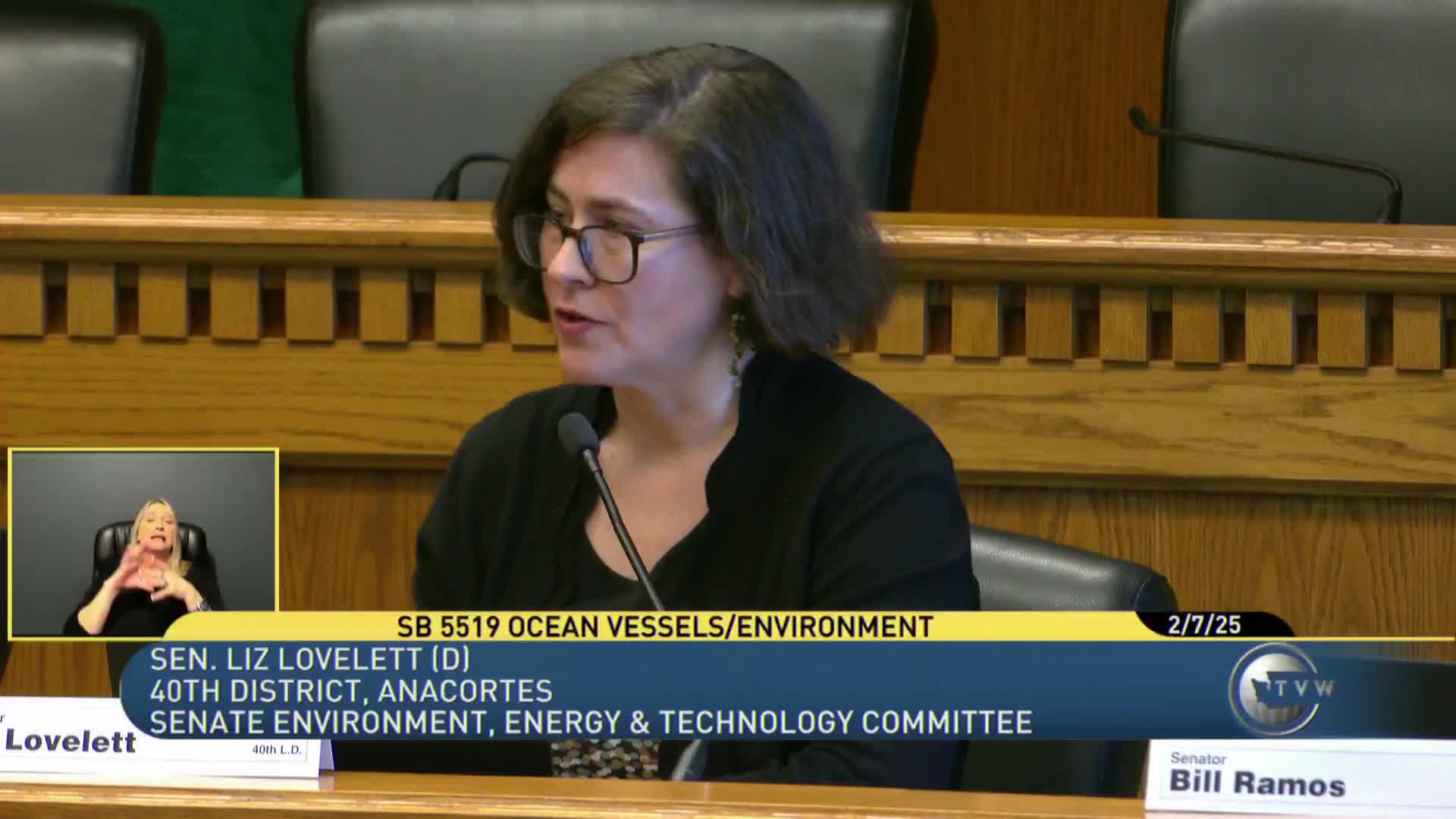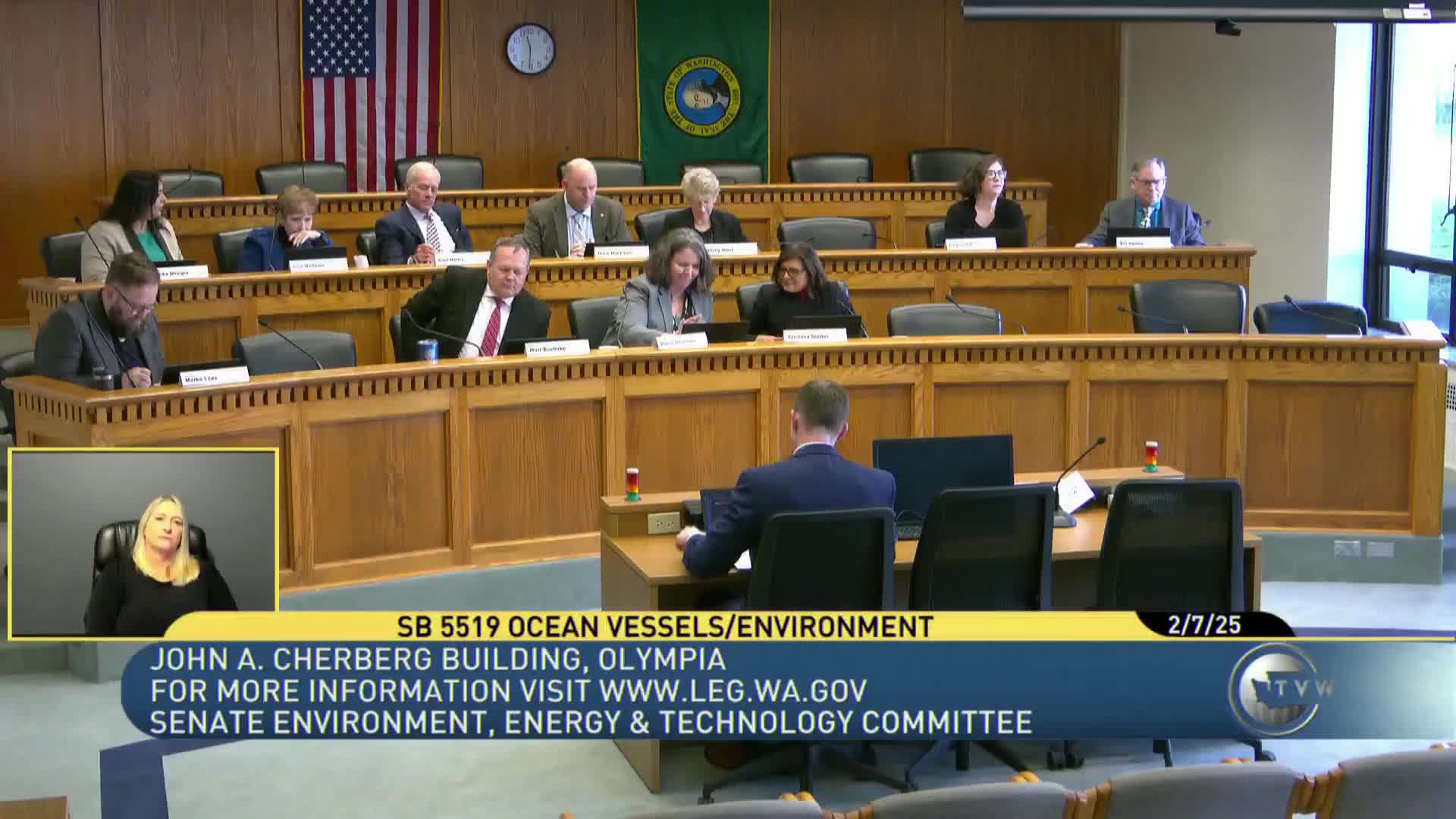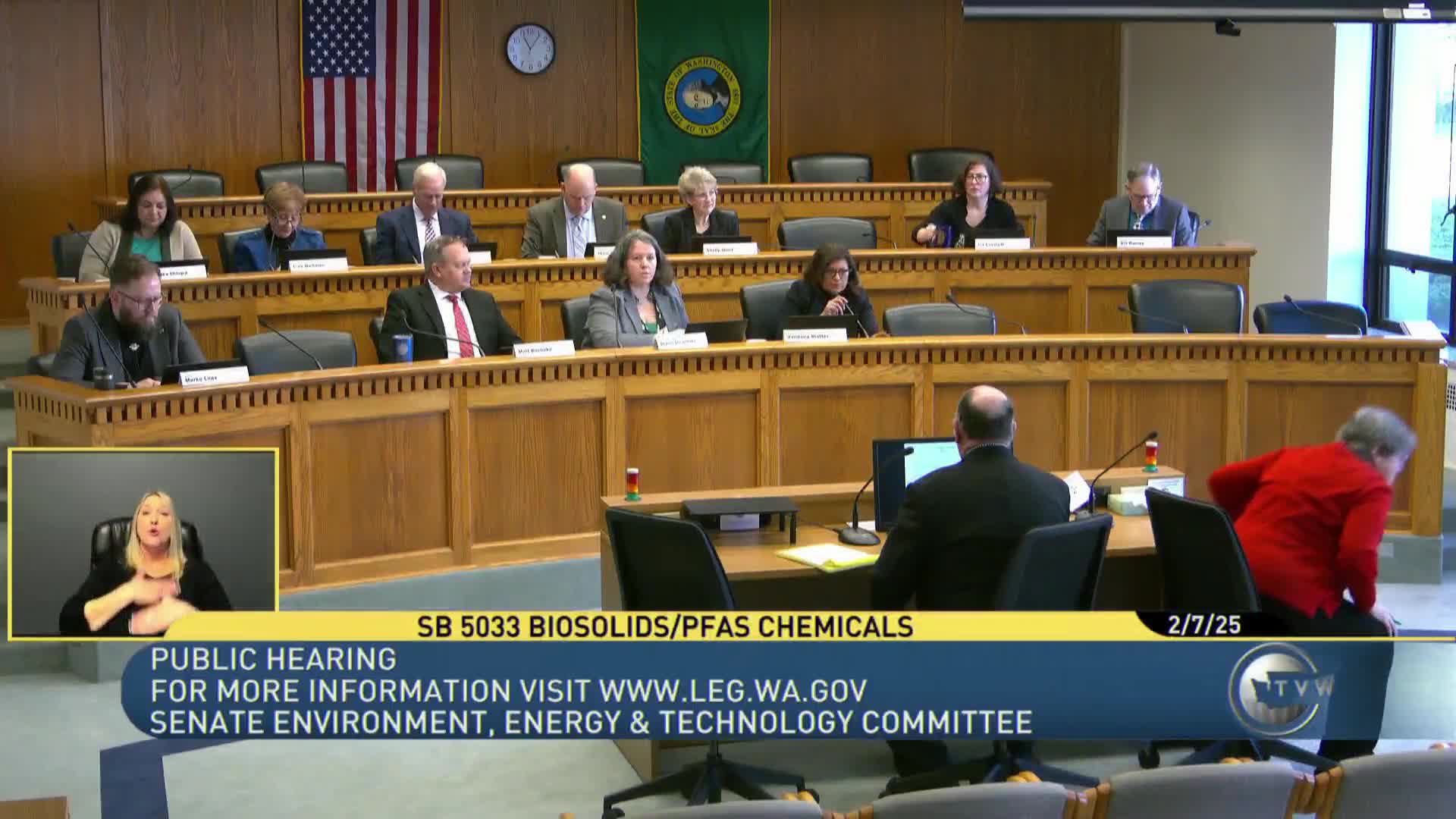Article not found
This article is no longer available. But don't worry—we've gathered other articles that discuss the same topic.

Committee executive session: substitutes and amendments adopted on multiple bills; voice votes recorded, no roll‑call tallies in transcript

Bill would require Ecology to post and notify public about sewage spills; advocates back transparency, agency flags implementation needs

Committee hears opposing views on bill to limit high‑sulfur ship fuel and scrubber discharges in Washington waters

